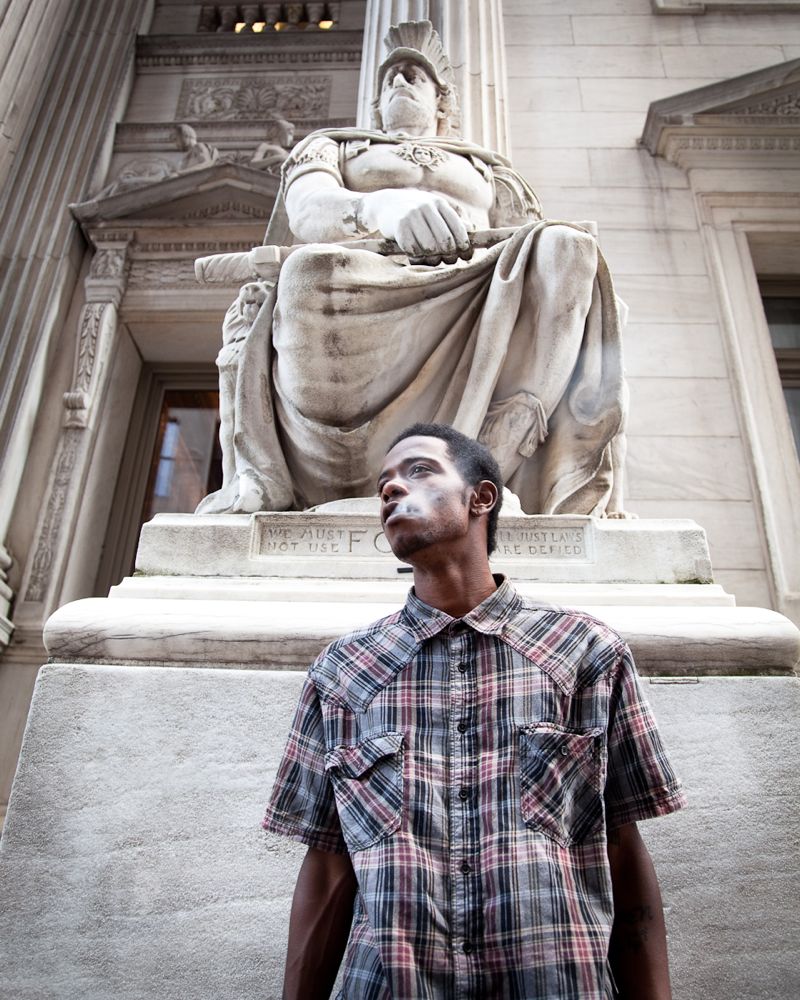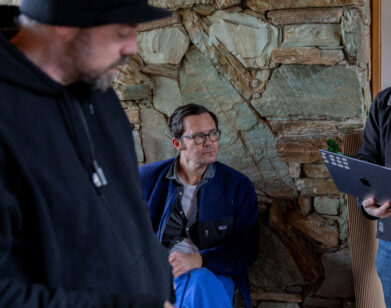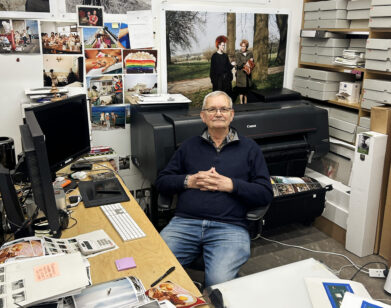Discovery: Lakeith Stanfield
PHOTOS BY THEA GOLDBERG.
Grace works at a short-term group home, a surrogate parent to a slow-rotating slew of teenagers. She’s only in her early 20s but, at work, she is an adult: responsible, authoritative, absolute. Any personal issues—the parole hearing of her abusive father, her boyfriend’s desire for greater intimacy—are ignored in favor of her charges.
Based on writer and director Destin Cretton’s thesis short, Short Term 12 stars rising actress Brie Larson, The Newsroom‘s John Gallagher Jr., Rami Maleck, and Kaitlyn Dever. It is newcomer Keith Stanfield, however, who particularly stands out as Grace’s eldest resident, the introverted Marcus. Stanfield is the only cast member to have acted in Cretton’s original short, and he co-wrote the heartbreaking rap his character delivers in the film.
We spoke with Stanfield from his home in California.
HOMETOWN: Victorville, CA. I was born in San Bernardino in summer of ’91 and grew up in Riverside, San Bernardino, and Victorville.
AGE: In my mind, I’m 1000, but I’m 22 in years I’ve been on this planet.
ROLES TO DATE: This was my first feature film. Prior to this I did the short of Short Term 12 in 2008 and 9—that was the very first thing that I ever did. Then in 2010 I did a short called Gimme Grace with Anthony Onah.
DREAM ROLE: Have you ever heard of Guess Who’s Coming to Dinner? I would like to play Sidney Poitier’s role—I love that role. Cinema has the ability to change things; [and] I would love to do something that really shakes up things a little bit. Maybe if I played a role that black people typically don’t play, that would be cool—probably a banker or a superhero. Not like Hancock—like Superman, but a black one.
EARLY AMBITIONS: I really didn’t sit down and decide, “Okay, this is what I want to do”—I’ve just always been the performer of the family. We used to do sock puppet shows for my auntie back in the day. Me and my friends would do accents of Englishmen and we would sip tea and act like we were rich in front of the family and they thought it was just hilarious, the level of perception that we had about things that we’d never experienced.
WATCHING AND LEARNING: When I watched movies, I’d always think, “If I was an actor, I would do that like this and I would do this like this.” And, oddly enough, that’s what I did with this movie. I watched the short version and I was like, “Okay. I can tell that I was nervous and I was tense, and I did this like this and this like this.” It helped me a lot with my performance. I felt so much more comfortable. In the original one I was absolutely terrified; it was my first thing and I just wanted to do good and I was very self-conscious. I feel like with every performance that I see, I get better because I’ve always thought—while I’m watching people perform—of what I would do. That’s where the spirit of my talent comes from, just watching other people. When I was two years old, I cussed my mom out because she took a candy bar from me. I’d been wanting to eat this candy bar for a long time and then she took it out of my hands, I was just fucking heated. I was only two, but I got that vocabulary from watching movies—they would just let me watch rated-R movies like it was nothing. Was my mother upset? She didn’t even know what to do. She was like, “How do I respond to that?” And my auntie was like, “You better whoop his ass!” So that’s what she did, and I never cussed at her again.
MAKING YOUR OWN WAY: I just hopped on Google and typed in actor-y stuff. Anything that came up actor-related, I just clicked on it and tried to sign up or send information to it. Someone e-mailed me back talking about, “You’re gonna audition for a movie.” I was excited. I went down there and I auditioned and it turned out that it wasn’t really for a movie—this was just to lure people in. It was really an acting school. Once I did the audition they said I qualified to be in the acting school, of course, but I had to pay $5,000 for the sessions. So we did that and they’d set you up in front of agents every couple of weeks and I signed with one of the agents. After that, one of the management people from the actual school signed me under her management firm. [The agency] I signed with was a commercial agency and they were sending me on all these McDonald’s commercials and things like that. I explained to my manger that I didn’t really want to do commercials; I don’t like commercials that much. I think we buy too much stuff in this country—we’re saturated in commercials and I didn’t really like the idea of selling things in that way. So she would just send me off on film things and she sent me to this student [Destin Cretton] who was doing this film for his thesis project called Short Term 12. I walked in the room and started cussing a little bit and he liked me so he let me do the short and that’s pretty much where everything started. I’m really bad at telling stories, though.
FIRST FEATURE FILM: After I did the other short, I kind of dropped off the radar because I wasn’t getting sent out on anything —they kind of put me on the back burner. I was gone for a long time. One day I checked [my emails] and I had, like, five unread messages from Destin: “We’re doing a movie, do you want to come out and audition for it?” I drove out to his house in L.A. and we did the audition there. We sat in his living room and did the audition.
RAPS AND RHYMES: I rap just to get things off my chest. I like to talk about the things that I see—kind of like a reporter, I guess. If there was something that came out of it where I could do it professionally, I probably would, but I’m not really aiming to do it, not particularly. I really want to act.
Destin wrote the original rap in [Short Term 12]—as you can imagine, Destin’s probably not a really good rapper. He’s a great writer—rapping, I think he should leave that to the professionals. But I got his original rap and I just rewrote the whole thing and sent it back to him and he kind of chopped it up and integrated some of the things that he had in the original rap and some of the things that I put in the rap and what everyone heard was the final product of that. It was basically his template with my lyrics on it.
THE MADNESS OF METHOD: My poor coworkers! My poor fellow actors probably didn’t like me too much during the duration of making this film because I didn’t leave character. I didn’t get into character or leave character; I was always Marcus. I didn’t start to get to know people until we started actually promoting the film and I was back to normal. I wanted to do that for a couple reasons: I don’t like to transition into character, I like to already be in character before the camera comes on. I tell people I’m not a good actor, I’m a good shower and I just show you what I’m really feeling at that particular time. I’d rather do it that way than try to act it, because it doesn’t feel right.
DEBUTING AT SXSW: Oh man, it was crazy. When we won the Grand Jury award—I felt like God had just punched me in the chest. I wasn’t ready for that. I didn’t know how to respond—everybody was crying, everybody was really emotional. I feel like we worked really hard and I was so glad to see us actually reap the benefits.
THE FUTURE: Has this film changed things for me? Oh yeah. Drastically. I mean, it’s a whole other world out there I wasn’t even aware of. In a lot of ways I’m like Marcus going into something [new], except I’m not afraid to go into it. I really don’t feel like there’s anything to be afraid of, but there’s a lot to learn. I’m going into it and kind of just keeping my eyes open and trying to soak everything in and seeing where I can continue on and keep the ball rolling. It’s definitely an exciting time for me.
SHORT TERM 12 IS OUT IN LIMITED RELEASE TOMORROW, AUGUST 23. TO LISTEN TO KEITH STANFIELD’S MUSIC, VISIT HIS SOUNDCLOUD.







